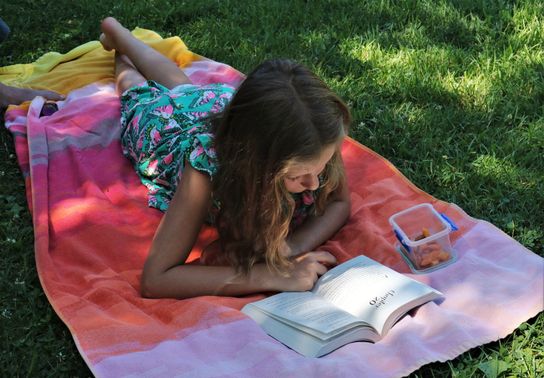As I write this, we’ve just entered another lockdown - the third of this pandemic. While COVID-19 is beginning to appear never-ending, this time round is a little different for my family because we have some childcare. I couldn’t be more grateful. Gone is the panic and absolute mayhem of trying to work (in my marketing role) and look after a couple of toddlers. But, even then, I feel like I had it easier than many parents of older children. I may have had to work during naps and in the evenings, but I didn’t have to teach at the same time as working, and therefore I didn’t have the guilt that I know overcame many other parents that I spoke to. I appreciate how hard it must have been to try and carve out enough hours in the day to make sure you get all your own work done while helping your child/ren to complete theirs too. I’m in awe of everyone who is going through the same again.
There’s no right answer for how to survive this period, and there will always be something that falls by the wayside - kids watching TV for hours (been there), work at midnight (and there) and incomplete schoolwork. Is there anything you can do to make it better? Maybe. Maybe not. Some strategies work for some families and totally backfire for others. I wanted to tell you about one which worked for a parent I know in the hope that it might help some of you.
A friend of mine has two children aged 9 (girl) and 7 (boy). Possibly one of the hardest ages when it comes to lockdown, as they're not quite at the stage where they can be set up independently for longer periods of remote learning. TV came to the rescue of course with many fights about what to watch. “If you read a book instead, you could each choose which one you want,” my friend said, frantically trying to rip the remote from their hands - and just for a moment she had their attention. Neither had been great readers in the past, but they oddly jumped at the chance of choosing a new book online. And then, in a last desperate bid to occupy them with something worthwhile, my friend did a couple of things that seemed to work:
1. Dropping nuggets of info to keep them keen: She researched both of her children’s selected books online to find out about the setting, the characters, the time period and the author. As they were waiting for them to arrive, she randomly dropped in little bits of info about them: ‘Did you know that
2. Getting friends involved: She asked whether they both wanted to ask a friend or two whether they might be keen to read the same book at the same time. Then they could have a mini online book club. Her older daughter really ran with this and has set up a club with three friends which continued beyond the first lockdown and is still running today (albeit sporadically). Her younger son initially saw it as a competition to see who could read the book quicker and answer more questions about it.
3. Incorporate a quiz: Continuing the competition theme, a quiz is a great way to encourage a ‘deeper’ reading of the story and see how much the kids remembered from it. The promise of a prize will definitely help! If you don’t have the time to write your own, BookTrust has some great quizzes covering a huge range of books. Take a look here. Of course, you can always get the kids to write their own and test their friends. This is what worked for my friend’s kids!
And here are a few other tips which I got from other parent and teacher friends:
4. Shamelessly drop in a few celebs: One of the major troubles with getting reluctant readers to open a book, is that reading is not perceived as ‘cool’ so if you can drop in some famous names who will help to lessen this image, you’ll already be part of the way there. The National Literacy Trust has a whole range of celebrity supporters and it's also worth having a look at Premier League Primary Stars.
5. Look into new authors: New authors love to hear from readers, and many kids get a kick from writing to them! If your kids particularly enjoyed a book, encourage them to look up the author online and ask whether they might want to get in touch with said author to give them some great feedback. You can then try and reach out to them via social media or their website and see if you get a response. More often than not, you will do.
Having written the above, I’ve just realised that a lot of the points still stand even outside of lockdown. Hopefully they might make a difference to a few kids out there who are yet to discover the true magic of books!

